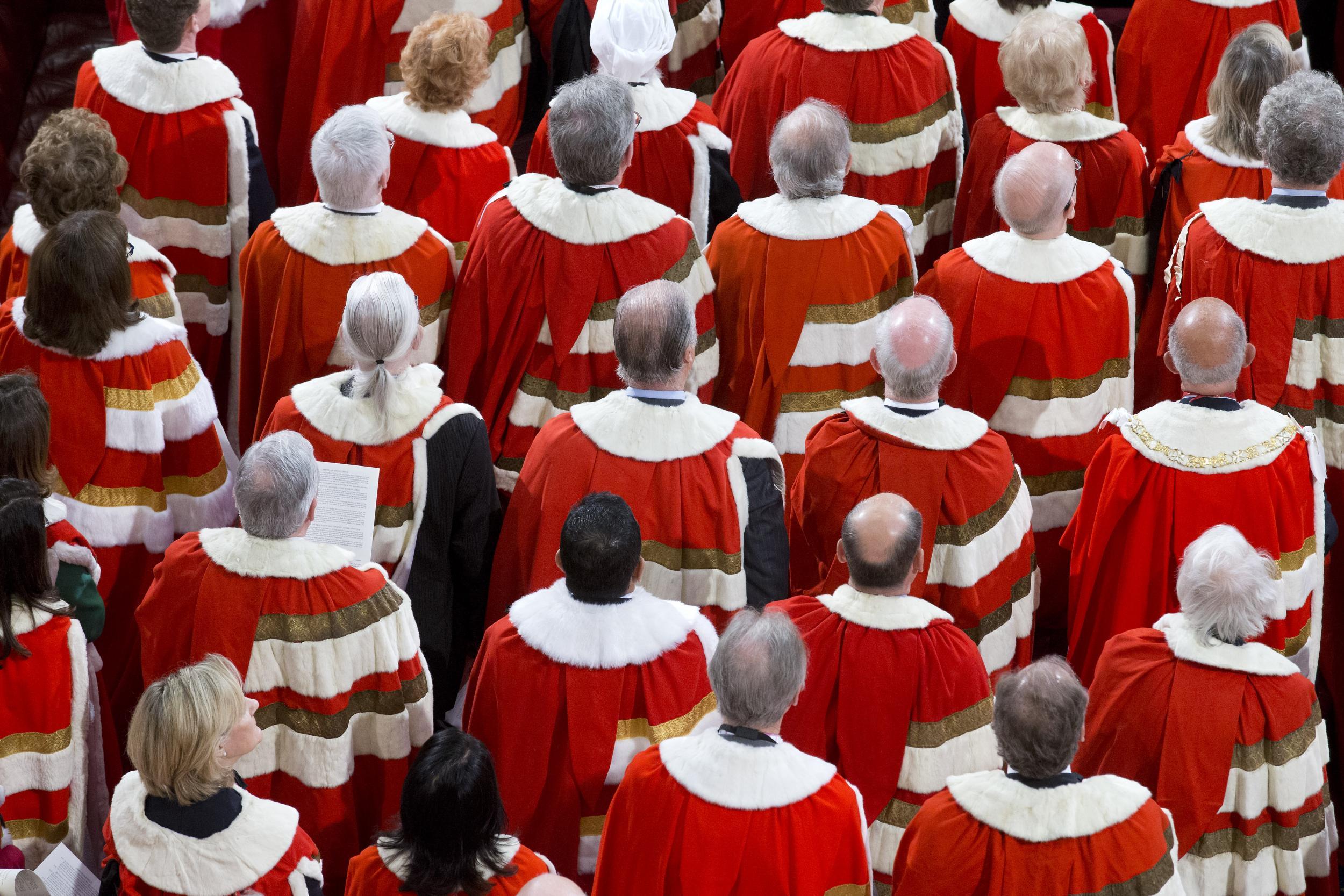House of Lords membership should be cut by nearly a quarter to just 600 peers within a decade, finds report
Long-awaited reforms would scrap political majorities in the Lords and limit peers to 15-year stints on the red benches

The size of the House of Lords should be capped at 600 peers within a decade, according to new proposals aimed at shrinking the bloated upper chamber.
Political parties would share appointments based on their Commons showing, rather than being at the discretion of the Government, and peerages would be limited to 15 years, the long-awaited report by the Lords Speaker's committee suggests.
The plans include a 'two out, one in' system to speed up departures until the 600-peer target is reached and new rules to ensure no party has a majority, with 20 per cent of membership reserved for independent crossbenchers.
Electoral reform campaigners said the plans were too cautious, allowing the unelected upper chamber to remain "an embarrassment for Britain".
It comes amid growing concern over abuse of expenses rules by "couch potato peers" as research showed that 16 members claimed around £400,000 without speaking in any debates or submitting any questions for an entire year.
Lords Speaker Lord Fowler, who set up the committee, said: “The House of Lords carries out vitally important work in holding the government of the day to account. However with over 800 members – about 150 more than the Commons – we are too large. The time has now come to take action to correct this and put a cap on numbers for the future.
“This report presents the Lords with an important opportunity. A smaller, more effective house will be able to build public confidence and support for its crucial constitutional role in checking bills before they become law and in reviewing policy through their hard working select committees."
Former Prime Minister Tony Blair cut the size of the second chamber when he abolished hereditary peers in 1999, although the number of Lords has swelled to nearly 800 in recent years.
Committee chairman Lord Burns urged politicians on all sides to back the "realistic opportunity" to cut the House down to size, as these proposals could be brought in without changes to the law.
He said: “Our proposals would see the numbers come down to 600 and stay there, while also allowing the membership to be refreshed and to reflect changing public opinion over time.
“This is one of the most complicated issues that my fellow members and I have ever faced. While no set of proposals will ever be perfect, we believe that ours would provide a fair solution which could prove sustainable for as long as this remains an appointed chamber."
Under proposals, parties could sidestep the limit by giving out peerages as a form of honorary title without recipients expected to sit in the House of Lords.
The committee also suggested scrapping hereditary peer by-elections but acknowledged that such a move would require new legislation.
However the Electoral Reform Society said there move would amount to little change despite a "painfully long time frame", as a slimmed-down upper chamber of 600 members would still be the second largest in the world.
Chief Executive Darren Hughes told The Independent: “We’ll have people on Mars by the time these proposals are fully introduced. And most of us will be in driverless cars when the plans to cut the Lords down to 600 members are in place.
"These changes are so cautious not to offend current members that they barely amount to reform at all.
“The fact that the report proposes no reduction in the number of hereditary peers simply adds another layer of ludicrousness.
"As the committee admit, reducing the size of the upper house overall without reducing the number of hereditary peers will make only increase the power of aristocrats over our democracy – something that seems a democratic outrage now, let alone in 15 years."
A Labour Lords spokesman welcomed the proposals, adding: “There is widespread agreement on all sides of the Lords that the House has become too large – in part a consequence of David Cameron’s six years of packing the government benches.
“This a serious and thoughtful report, with some welcome recommendations on 15-year terms for new members, plans to ensure the continuing flow of new blood in the chamber, and the removal of the Prime Minister’s absolute power on appointments.
“We look forward to discussing the recommendations with colleagues from across the House, but in the absence of upcoming legislation on Lords reform we would also hope for a positive response from the government.”
Dick Newby, Liberal Democrat Leader in the House of Lords, warned that the proposed reforms would be undermined if the Prime Minister tried to create more Tory peers to help pass Brexit legislation.
He said: “Without a cast-iron assurance from the Prime Minister that she will act in line with these proposals, they will be dead in the water.
“If we are to make progress with reform, we need cross party agreement, and cross-party goodwill.”
Join our commenting forum
Join thought-provoking conversations, follow other Independent readers and see their replies
Comments